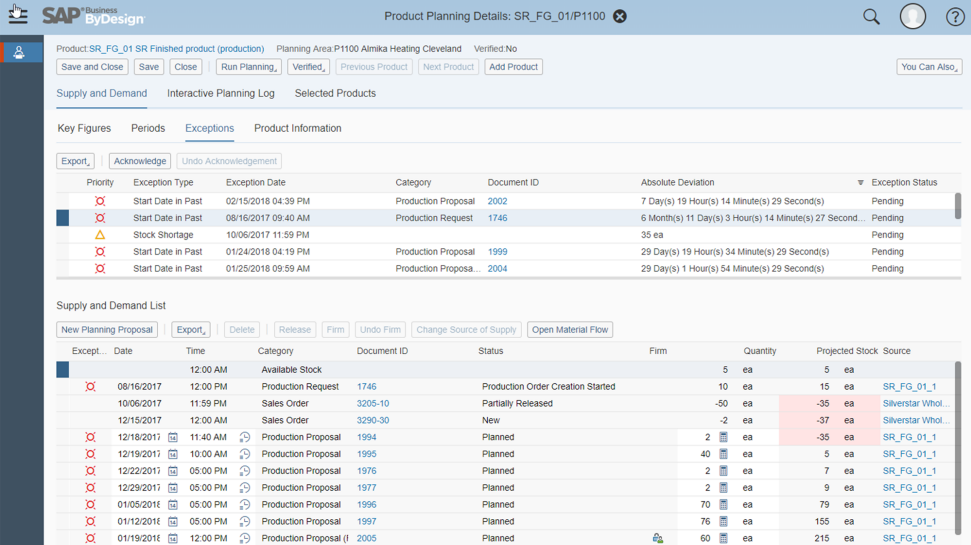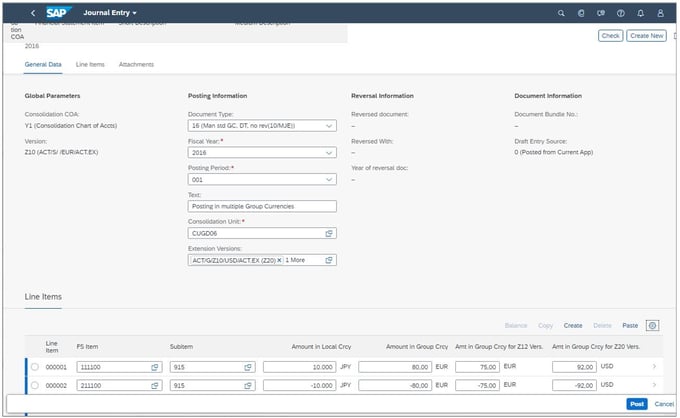German software vendor and powerhouse SAP is not necessarily known for providing business software and ERP systems to the SMBs - small and medium sized businesses.
Typically the ERP behemoth is associated with providing ERP systems such as it's SAP ECC 6.0, R/3 and S/4 HANA to large corporations and apparently, 80% of the Fortune 500.
But in 2024 and beyond, is SAP finally relevant to the SMB?
In this post we explore SAP's SMB ERP offerings and discuss it's latest developments, critiques and more.
SAP ERP for SMB Offerings
The first criticism of SAP for SMB companies is that it's products are too complex and expensive for small and medium sized enterprises. But is that necessarily true?
Whilst its certainly true that SAP S/4 HANA or older products like R/3 are not built for SMB companies, SAP maintains and sells several ERP products including SAP Business One and SAP Business ByDesign. It's enterprise product SAP S/4 HANA even comes in two flavours - public and private Cloud, with the public version being more suitable for fast growing small and medium sized businesses.
Lets deep dive into SAPs SMB offerings below:
SAP Business One
.png?width=716&height=386&name=SAP-Business-One-User-Interface%20(UI).png)
SAP Business One is designed specifically for small and medium-sized businesses (SMBs). It's an integrated enterprise resource planning (ERP) solution that covers a wide range of functionalities, including financials, sales, customer relationship management (CRM), inventory, and operations. It's available both on-premise and in the cloud.
Features:
- Financial Management: Accounting, budgeting, and financial reporting.
- CRM: Sales and customer management, including opportunity management.
- Inventory Control: Stock management, order processing, and procurement.
- Production Planning: Basic production and manufacturing capabilities.
- Analytics and Reporting: Built-in analytics and customizable reports.
Relevance for SMBs:
- Cost-Effective: Generally less expensive than SAP's larger ERP solutions.
- Scalability: Designed to grow with your business.
- User-Friendly: Easier to implement and use compared to more complex systems.
- Industry-Specific Solutions: Offers pre-packaged solutions tailored for specific industries.
SAP Business ByDesign

Overview:
SAP Business ByDesign is a cloud-based ERP solution aimed at fast-growing small and mid-market businesses. It offers a broad range of functionalities, including financials, human resources, supply chain management, project management, and CRM.
Features:
- Financial Management: Comprehensive financials including accounting, cash flow management, and analytics.
- Human Resources: Talent management, payroll, and employee self-service.
- Supply Chain Management: Procurement, production, and logistics.
- Project Management: Project planning, resource allocation, and time and expense tracking.
- CRM: Sales, marketing, and service modules.
Relevance for SMBs:
- Cloud-Based: Low upfront costs and quick implementation.
- Scalability: Can easily adapt to growing business needs.
- Comprehensive: Offers a wide range of functionalities that can replace multiple standalone systems.
- User Experience: Designed with the end-user in mind, offering a more intuitive interface.
SAP S/4 HANA

Overview:
SAP S/4HANA is SAP's next-generation enterprise ERP suite that comes with advanced features including a simplified data model and improved user experience. It's aimed at large enterprises but can also be scaled down for SMBs with big growth ambitions.
S/4 HANA comes in two flavours - Public Cloud (Essentials) and Private Cloud which are two distinct code lines. The Essentials version has been rewritten to run natively in the Cloud, whereas the Private Cloud version is the On-Premise version, hosted on a hyperscaler such as AWS, GCP, Azure and others.
Features:
- Finance: Advanced financial management, including real-time analytics.
- Logistics and Supply Chain: Comprehensive supply chain management features.
- Human Resources: Complete HR suite including talent management.
- Customer Experience: Advanced CRM capabilities.
- Analytics and Reporting: Real-time analytics and reporting tools.
Relevance for SMBs:
- Advanced Capabilities: Offers functionalities that can support businesses as they grow into large enterprises.
- Flexibility: Can be customized extensively to meet specific business needs.
- Real-Time Analytics: Advanced analytics capabilities for better decision-making.
- Cost: Generally more expensive and may be overkill for very small businesses.
Risks of SAP for SMB
One of the common criticisms of SAP ERP projects is the fact that they often overrun, fail and can be more expensive than anticipated. They are often so bad, that business as usual can be severely disrupted and businesses can lose revenue, customers and face unexpected downtime.
These war stories often put off would-be SAP ERP buyers, especially those in small businesses that cannot afford to sacrifice revenue, downtime or customers or face complex implementation projects with large systems integrators.
However, it's important to understand that there are multiple SAP products and it's ERP solutions SAP Business One and SAP Business ByDesign are less prone to multi-million dollar failures - however there have allegedly been cases.
Cost of SAP for SMB
Another common critique of SAP for small and medium sized businesses is the cost of its ERP software and implementations. But is SAP too expensive for SMBs?
SAP Business One:
License Fees: For an on-premises deployment, the cost of a SAP Business One professional user license can range from $3,000 to $4,000 per user. Limited or "light" user licenses are generally less expensive, often around $1,500 per user.
Implementation Costs: Implementation can range from $10,000 to $300,000 or more, depending on the complexity of the business processes, the number of users, and the level of customization required.
Maintenance and Support: Annual maintenance and support fees are typically around 18-22% of the software license cost.
Cloud Subscription: If you opt for a cloud-based solution, you might expect to pay a monthly subscription fee ranging from $80 to $200 per user per month.
SAP Business ByDesign:
Subscription Fees: SAP Business ByDesign is generally offered as a cloud-based solution with a subscription pricing model. The cost can range from $150 to $250 per user per month, depending on the functionalities required.
Implementation Costs: Implementation costs can vary but are generally in the range of $30,000 to $300,000+ for small to medium-sized businesses.
Additional Modules and Features: Additional costs may apply for extra modules or functionalities, which can range from a few thousand to tens of thousands of dollars.
Maintenance and Support: These costs are often included in the subscription fee for cloud-based solutions like SAP Business ByDesign.